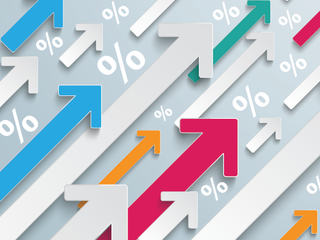Summary
BBVA account holders are reporting fraudulent activity on their cards, which is a good reminder to check your credit card accounts. Find out how and start today.
The content on this page is accurate as of the posting date; however, some of our partner offers may have expired. Please review our list of best credit cards, or use our CardMatch™ tool to find cards matched to your needs.
Earlier in February, the website Doctor of Credit reported that some BBVA cardholders were experiencing unauthorized transactions on their accounts.
Now, the website has reported these mysterious charges were more widespread than originally suspected because other banks have been affected. It also mentioned that some of those fraudulent charges might be from these merchants: coloadtest.com, SUMUP and Wfxb.
As if that’s not bad enough, some account holders reported that their cards had been stolen and asked for new cards. Before the new cards even got into their hands, new unauthorized charges showed up on them.
A BBVA spokeswoman said the company believes this was the result of a compromise at one or more entities that are not affiliated with the bank and that BBVA is in the process of conducting a thorough investigation.
Meanwhile, it has instituted controls to reduce the risk to customers and encourages customers with any unauthorized charges on their accounts to file a transaction dispute by visiting a branch, contacting BBVA customer service or writing to the address listed on the back of their statements.
Once that is done, BBVA will close the impacted card and reissue a new one with a new number.
See related: Credit card scams in the time of coronavirus
How to keep your credit card account safe
As U.S. credit card fraud continues to rise it’s essential you take what steps you can to protect your account. Here are some things you can do:
- Review your account on a regular basis.
- Get a free copy of your credit report at least once a year from annualcreditreport.com.
- Check your credit card statements each month and look for any unauthorized activity.
- Sign up for an alert from your card issuer each time you use your card or when a transaction of a certain dollar amount is charged to your card.
- Ask your issuer if it offers virtual credit card numbers, which enable you to make purchases for a limited time or from a specific merchant.
See related: What is a virtual credit card, and how do you get one?
If you catch an unauthorized charge, correct it quickly
Ted Rossman, industry analyst at CreditCards.com, said this is a good reminder for all of us to remain vigilant and review our bank and card statements at least once a month.
Unfortunately, it’s difficult to prevent this sort of payment fraud, Rossman added.
“I often recommend credit freezes, but those prevent criminals from opening new accounts in your name – they don’t prevent fraud on your existing cards,” he said.
Rossman’s best tip regarding payment card fraud is to make sure you catch it quickly and get it corrected.
It’s also good to use credit cards rather than debit cards, because a debit card is directly linked to your checking account.
“Credit cards are just lines of credit – the bank’s money, up until you pay them back – so in the event of fraud, that’s not actual money out of your pocket,” Rossman explained.
See related: Credit card fraud and ID theft statistics
Editorial Disclaimer
The editorial content on this page is based solely on the objective assessment of our writers and is not driven by advertising dollars. It has not been provided or commissioned by the credit card issuers. However, we may receive compensation when you click on links to products from our partners.


